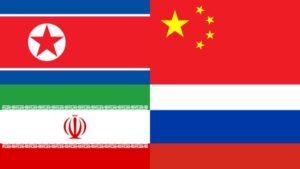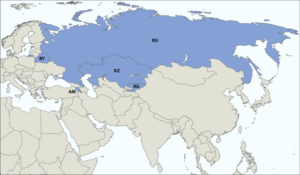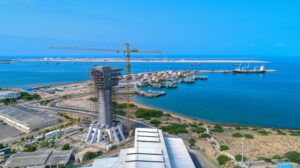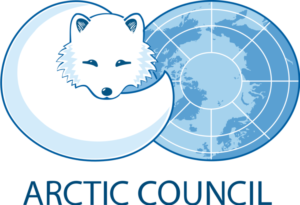The Presidency of the Council of the European Union is held in rotation by the EU member states for a six-month period. During each six-month period, the Presidency leads meetings of all levels in the Council, helping to ensure continuity of the EU’s work in the Council.
The Council of the European Union aims to give political direction 1 to the European Union while the European Commission is responsible for implementing the policies proposed by the Council of the EU.

How does the European Union’s “trio” working group work?
Member States holding the Presidency work closely together in groups of three, called “trios.” This system was established by the European Union’s Lisbon Treaty in 2009.
The trio sets long-term goals and prepares a common agenda that sets out the themes and main issues that the Council will address over an 18-month period. Based on this agenda, each of the three countries prepares its own more detailed half-yearly program.
The current trio consists of the Portuguese, Slovenian and French presidencies.
The Slovenian presidency of the Council of the European Union now runs from July 1 to December 31, 2021.
What are the priorities of the Slovenian Council Presidency?
The priorities of the Slovenian Presidency are guided by its motto: “Together. Resilient. Europe.
The Presidency’s program is articulated around four main areas:
- the recovery, resilience and strategic autonomy of the EU
- a reflection on the future of Europe
- the European way of life, the rule of law and European values
- strengthening security and stability in the European neighbourhood
- The Slovenian Presidency of the Council of the EU will seek to actively contribute to strengthening the EU’s resilience in the face of health, economic, energy, climate and cyberspace crises. The current Covid-19 pandemic and financial crises such as those of 2008/2013 are the main focus.
The Slovenian Presidency also hopes to achieve a breakthrough in the accession negotiations of Northern Macedonia and Albania to the European Union by continuing the EU’s expansion towards the Western Balkan region.
What are the concerns about the Slovenian presidency of the European Union?
The Council Presidency is an opportunity for countries to influence the direction of European decision-making processes and to mediate between the diverging opinions of member states. The Slovenian presidency will be under intense scrutiny from Brussels (the “capital” of the European Union) and member states.
Some member states, including Austria, point out how, since Slovenia’s independence in 1991 and its accession to the EU in 2004, the country has lost much of its reputation as a stable democracy.
The Slovenian government is currently led by Prime Minister Janez Janša, who is criticized for his attacks on the Slovenian and European press and for impeding the work of the new European Public Prosecutor’s Office by vetoing two Slovenian prosecutors.
What were the main achievements of the Portuguese Presidency of the Council of the European Union?
The Portuguese Presidency achieved important goals, mainly in the area of security and defense. For example, one of the highlights of the presidency was a European military training mission in Mozambique that was approved in June 2021.
EU-Africa relations were also one of the priorities of the Portuguese presidency, since it is essential that the EU provide support to African countries in crisis management.
The importance of the launch of the European Defense Fund and the advancement of the EU’s Strategic Compass, which aims to guide the EU’s future security and defense policy, should also be highlighted.
Why is the Council Presidency of the European Union important?
Along with the United States and China, the European Union is one of the 3 hegemonic countries/regions in the world. Through its economic strength, political and normative influence, and military power, the European Union, even if it is not a country, plays a key role in global issues.
With an increasingly integrated bloc, increasingly “speaking a single language” on the world stage, the importance of the European Union in geopolitical terms only tends to increase.
The European Union as an alternative to the United States vs. China polarization
With the United States and China increasingly conflicting in the economic, military, and geopolitical space, many countries find themselves pressured and afraid to align themselves with one of the two world powers.
Therefore, the European Union would be a more neutral alternative world power to align with those countries that do not want to get involved in the United States-China rivalry.
Therefore, the short-term success of the European Union will be directly related to the success of the Slovenian Presidency.






日軍第731部隊旧址_PB121201-e1713902593308-300x224.jpg)












Be First to Comment